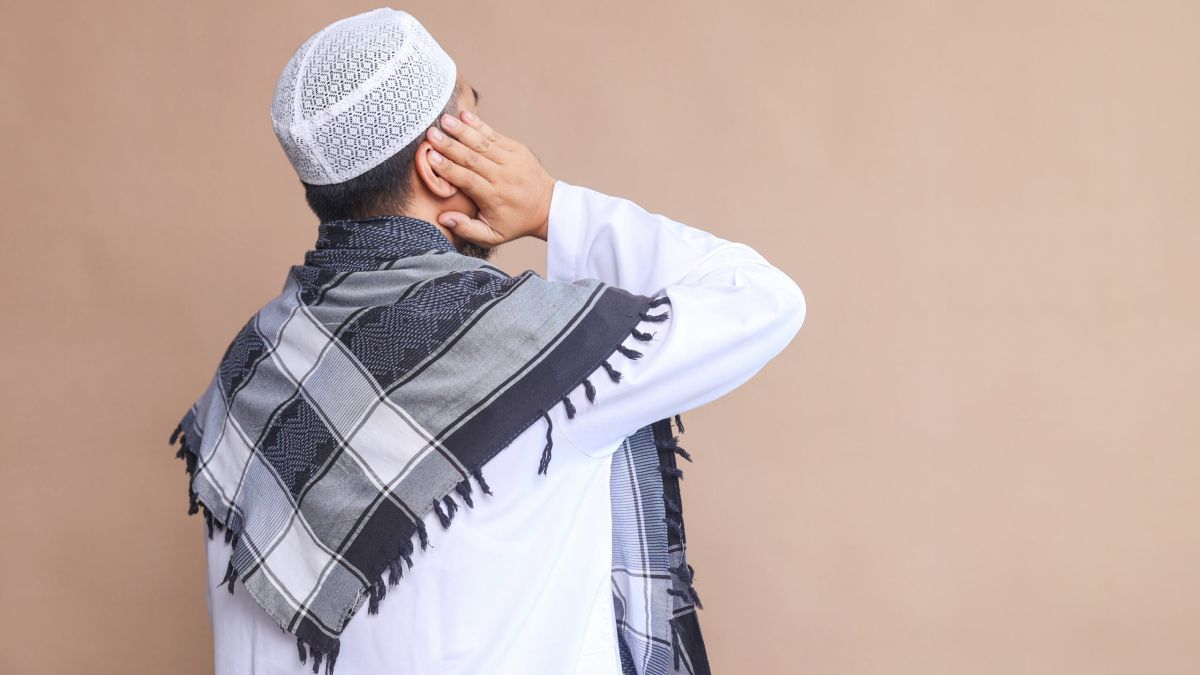The Desirable Qualities in a Muʾadhin
Imām Muḥammad ibn Ṣāliḥ al-ʿUthaymīn


The muʾadhin should be one who is loud-voiced, trustworthy and knowledgeable regarding the timings of the prayers. In our saying ‘should be’, there is an indication that some of these qualities may be obligatory in one who calls the adhān, or they may be considered recommended. We should examine the evidence that stipulates these attributes and that which has been proven obligatory should be labelled thus, and that which has been labelled recommended should likewise be labelled.
The Quality of Being Loud-Voiced
As for the attribute of being loud-voiced, this quality is recommended and not obligatory for the muʾadhin. It is only obligatory that his voice is sufficiently loud such that the people he is calling the adhān for can hear him. It is not considered obligatory for his voice to be heard by any additional people.
In our saying ‘loud-voiced’, this may refer to having a strong voice or possessing a melodious sound. It may also refer to performing the call in a proper manner, although this is not explicit from the characteristic. Here, there are three characteristics that are related to calling the adhān:
- strength of the caller’s vocals
- his melodiousness
- his performance or manner of calling
All three are required.
We can also infer from the attribute of being ‘loud-voiced’ being desirable that modern-day microphones are from among the blessings of Allāh. This is because they increase the vocal strength of the muʾadhin and his melodiousness. There is also nothing wrong with its usage for this purpose from a legislative standpoint. Insolong as the matter is thus, it represents a means towards a desirable, Islamically legislated goal. Whatever is used as a means should adopt the ruling associated with the goal intended by that means. It is for this reason that the Prophet (صلى الله عليه وسلم) ordered al-ʿAbbās ibn ʿAbd al-Muṭṭalib (رضي الله عنه) to issue a call on the day of Ḥunayn: “Where are the companions of al-Samurah?”1 He specifically was chosen due to the strength of his voice. This proves that for any action in which strong vocals are desirable, it is considered prudent to select for it those whose delivery will be most emphatic due to their vocal abilities.
However, that which has been adopted for the purposes of sound amplification which increases its echo and reverberations [unnaturally] is not Islamically legislated. It may be considered forbidden if, as a result of it, the last letter of each word is repeated due to the echo that has been added by these devices.
The Qualities of Trustworthiness and Strength
As for the quality of trustworthiness, it is recommended according to the Ḥanbalī madh`hab. The correct opinion in this issue is that it should be considered obligatory. This is because trustworthiness is one of the two qualities that are desired when entrusting the fulfilment of any action upon another. The second desirable quality is strength, as the Most High said:
إِنَّ خَيْرَ مَنِ اسْتَأْجَرْتَ الْقَوِيُّ الْأَمِينُ
“Verily, the best of men for you to hire is the strong, the trustworthy.”
(Al-Qaṣaṣ, 28:26)
Also, the saying of the strongest among the Jinn who volunteered himself to bring the throne of Bilqīs to Sulymān:
وَإِنِّي عَلَيْهِ لَقَوِيٌّ أَمِينٌ
“And verily, I am indeed strong, and trustworthy for such work.”
(Al-Naml, 27:39)
All ineptitude and fallibility associated with the completion of any task occurs in association with carelessness in one of these two qualities: strength and trustworthiness.
[Q]: If we have to choose between a person who is strong but not trustworthy or a person who is weak but trustworthy, who should be selected?
[A]: Selection should be based on the requirements dictated by each individual task. Some tasks stipulate more attention being paid to the attribute of trustworthiness, while others have a greater requirement for strength. For example, when specifying a commander, strength may be a more important quality to consider. While when selecting a judge, trustworthiness may be of greater import.
Trustworthiness also refers to being trustworthy with regards to the timing of the prayers, and with respect to the privacy of the people. This is especially applicable in the past wherein the muʾadhin would call the adhān from the top of the minaret.
The Quality of Being Knowledgeable of Ṣalāh Times
As for being knowledgeable regarding the timings of the prayers, this is not a prerequisite if we mean by it that he must know the time of prayer himself. This is because Ibn Ummi Muktūm (رضي الله عنه) [one of the muʾaddhins appointed by the Prophet (صلى الله عليه وسلم)] was a blind man who would not call the adhān until it was said to him: “Morning has arrived, morning has arrived.”2 However, it is better if the person calling the adhān knows the time of ṣalāh himself due to the possibility that there may not be someone available to inform him of the time. Or we may say: Being knowledgeable of the time is accomplished either by his own efforts, or by following a trustworthy person.
Knowing the time for the prayers is accomplished by means of the indicators that have been set by the Legislator. Ẓuhr time begins when the sun begins its descent from its zenith. Āṣr begins after the afternoon shadow has appeared, when this shadow is equal to the actual size of an object. Maghrib time begins at sunset. ʿIshāʾ begins when the red glow of dusk disappears. And Fajr begins at the second breaking of the dawn.3
These indicators have become mostly obscure in our current time due to the lack of care paid to them by most people. Instead, they have opted towards reliance on calendars, estimations, and clocks. These estimations may differ slightly to where between them there may be a difference of up to six minutes. Such a discrepancy should not be considered insignificant, especially when it relates to the time for Fajr or Maghrib as these two times are related to fasting. Despite this, all times should be subject to close examination. If there exists a discrepancy between two estimations, and both have been procured from one who is knowledgeable of indicators of the timings for the ṣalāhs, then we should favour the later of the two timings given. The reason for this is that the origin of this matter is that the time for ṣalāh has not arrived. Even if both estimations have been produced by those qualified to do so. The jurists (رحمهم الله) have explicitly stated this, saying: If it is said to two men: “Watch for the arrival of the time for Fajr.” Then, one of them says: “Fajr has arrived”, but the other claims it has not, we should adopt this latter opinion. Hence, we are permitted to eat and drink until they both agree that Fajr has arrived. However, if one of the two estimates was produced by one who is considered more knowledgeable or more trustworthy, his opinion should be adopted over the other.
Endnotes:
[1] Authentic: narrated by Muslim: 1775.
[2] Authentic: narrated by al-Bukhārī: 617 and Muslim: 1092.
[3] Referencing the ḥadīth of Ibn ʿAbbās (رضي الله عنه): Fajr [breaking of the dawn] is of two types: Food becomes ḥarām and ṣalāh becomes ḥalāl with one, and ṣalāh—the morning prayer— is ḥarām and food is ḥalāl with the other.” Shaykh Ibn ʿUthaymīn said: The true breaking of the dawn differs from the false one in that it extends from the north to the south, while the false one is the opposite of this extending from the east to the west. The second difference: There is no darkness after the true breaking of the dawn. Instead, the sky becomes increasingly bright until it fills the horizon. As for the false one, darkness occurs after it as it disappears. These are two differences. The third difference: The light of the true fajr appears attached to the horizon while the other appears unattached. Meaning: If you were to observe the very bottom of the horizon, there would be no light. This is the false fajr. These are the three differences between them. Our Shaykh Shaykh ʿAbdurahmān [ibn Nāṣir al-Saʿdī] said: The difference between them is close to half an hour. That is: The false dawn appears approximately half an hour before the true one. Then it fades. See Fatḥ Dhī al-Jalāl 1:445.
Source: Al-Sharḥ al-Mumtiʿ 2:49-53
Translated by: Riyāḍ al-Kanadī

















